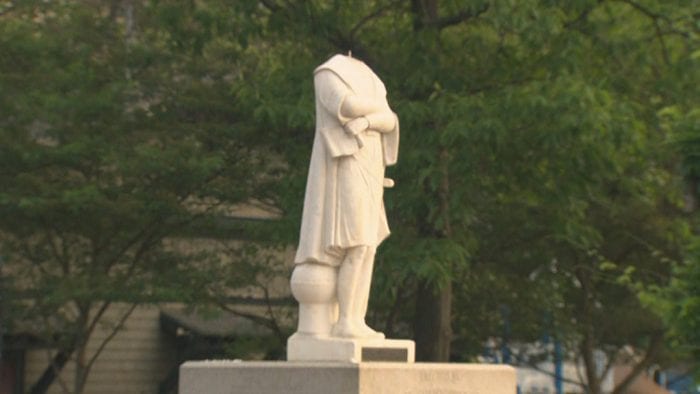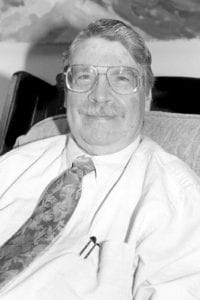Life Lines: When should we celebrate a discovery and not a discoverer?

By Elof Axel Carlson

I can accept the toppling of statues of dictators and those who were traitors and I can see as justified the removal of Confederate flags from public places. People whose personal deeds were heinous to Americans, like Confederate generals, or Benedict Arnold, have few virtues that can compensate for the major actions associated with their names.
It is more difficult for me to remove Columbus’s name from cities and our national celebrations of the opening up of the New World to Europe. The history of colonization is as old as history. Kings conquered whether in biblical times or in the fifteenth century. If all present occupants are colonizers and descendants of colonizers, should they go back to the countries that their ancestors left? Where would it end? In the Middle East when all the countries of the world were in the Middle East?
A similar difficulty is honoring a scientist for a major contribution to knowledge. Good science can be done by people of any ideology, religion, or ethnicity. Good science can be done in countries led by dictators. The scientists in those countries are also patriotic to their countries. They may also vary in their personalities regardless of how their countries are governed. A good scientist can make major contributions to humanity while being a cheating spouse, a tyrant as a mentor, a sexist, or a bigot.
I enjoy reading a lot about science and scientists. Most people are not saints. I am reminded of a phrase I learned in school — “most heroes have feet of clay.” It is important that a work of science is independent of the scientist’s personal behavior and beliefs. Often those beliefs are learned by the scientist who is shaped by the culture in which he or she resides.
In the 19th and 20th centuries most people were raised with racial theories that were discriminatory and prevailing views of human differences were based on what turned out to be false assumptions.
Virtually every educated person raised in the 1800s and early 1900s believed there were classes of people who were social failures. They called them paupers or degenerates. They falsely believed that they had defective heredity although genetics was not a science until the twentieth century. Some believed this defective heredity was caused by bad environments and could be reversed by good environments. Some believed the damage was irreversible except through draconian measures by laws forbidding their marriage or even worse, by sterilizing them as unfit to reproduce. It led to the “negative eugenics” movement that we reject today.
Very different was the “positive eugenics” movement that led to a conscious use of assortative mating, urging those who were successful, healthy, long lived, and talented to marry similar well-endowed spouses. Even W. E. Dubois embraced this positive eugenics outlook in 1903 calling it the “talented tenth” who would lead Black people out of the subjugated state most found themselves to be through neglect and bias of white society.
I believe we need to weigh a lot of issues in making decisions about renaming buildings, putting person’s portraits on currency, and naming our cities, high schools, and other public places. Should we avoid buying Volkswagens because Hitler wanted German automakers to make a “people’s car?” Should we avoid eating cream puffs because they were Hitler’s favorite dessert?
Humans live with diversity and not all that diversity is what we choose for our own lifestyle. We live with contradictory values, sometimes having rigid rules of behavior where right and wrong are clear-cut (don’t lie, cheat, or kill others) and other times we practice utilitarian ethics and go with “the greatest good for the greatest number.” Sometimes we trample on basic human rights in our self-serving interests like dropping atomic bombs on two Japanese cities filled with mostly noncombatant men, women and children.
Elof Axel Carlson is a distinguished teaching professor emeritus in the Department of Biochemistry and Cell Biology at Stony Brook University.






